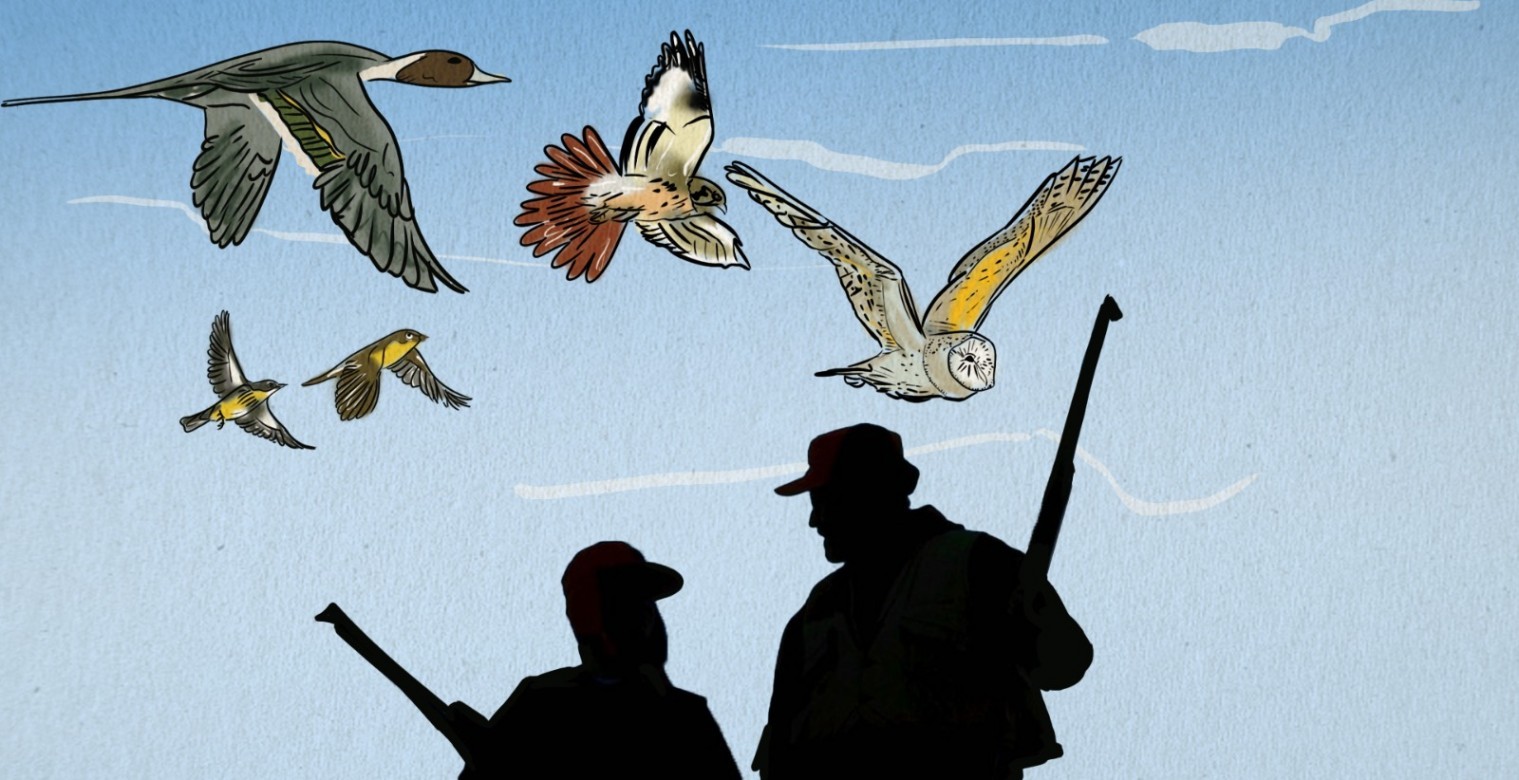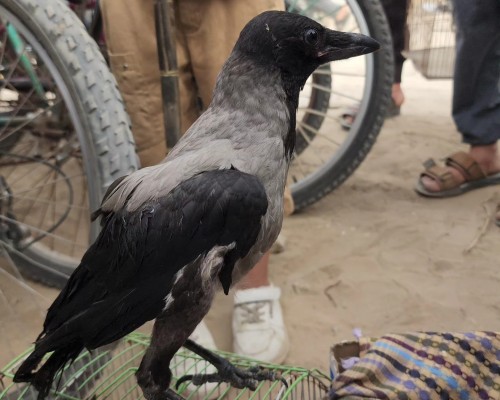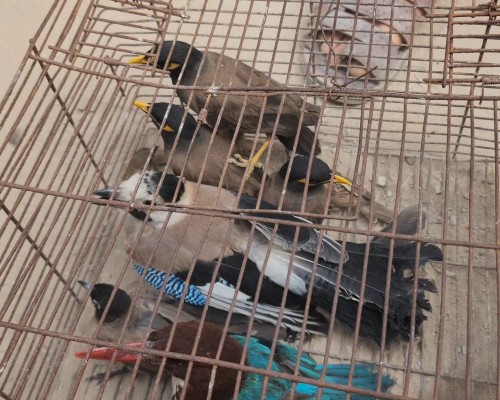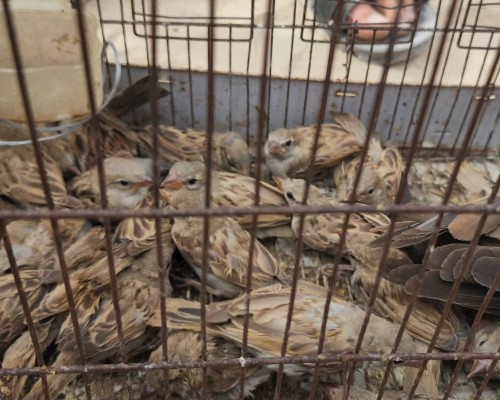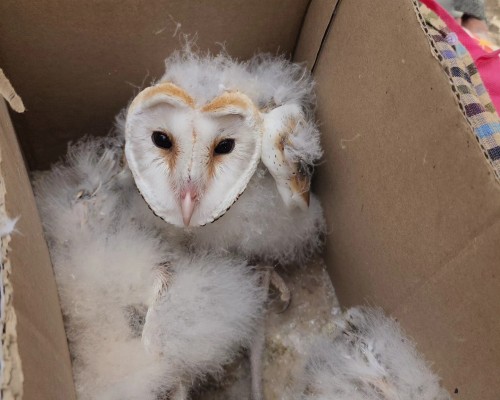On a tour inside the popular markets, including the Yarmouk market in Gaza City, you will be surprised by the quantity and quality of birds locked in cages of fine hand-made metal wire in huge quantities, and you may be surprised when you realize that these rare birds such as hoopoe, enamel and durra are offered for sale next to chickens and pigeons at low prices.
What is happening is a clear embodiment of the Arab proverb that says: “He who does not know the falcon will roast it,” indicating that he who does not know the value of valuable things overdo it. The reason may be the misfortune of some birds in Gaza, where they are prey to hunters' nets and traps or hunting rifles used without restrictions.
Abdel Fattah Abd Rabbo, a professor of environmental sciences at the Islamic University, who is also a researcher in the same field, described what is happening as poaching without restrictions or ethics, and is practiced without any regard for the environment.
Overfishing is defined as the process of hunting birds, wild and marine animals, and fish specified in the executive regulations of Law No. 7 of 1999 on the environment, without considering the environmental dimension and livestock, which contributes to an imbalance in the ecological balance and biodiversity.
By Article 41 of Act No. 7 of 1999 on the environment, it is prohibited to catch, kill or capture birds, wild and marine animals, and fish specified in the executive regulations of the Act.
The perspective of researcher 'Abd Rabbo' sees it is difficult to talk about this in light of the worsening poverty in the Gaza Strip, the lack of job opportunities, and the lack of food security, which causes young people to resort to agricultural lands and wilderness to practice their hobbies in hunting, and sell birds to feed their mouths and the empty mouths of their children waiting for any food to fill them.
According to statistics issued by the United Nations Relief and Works Agency for Palestine Refugees in the Gaza Strip, the poverty rate in the Gaza Strip is estimated at 81.8% living below the poverty line, while 64% are food insecure, and the overall youth unemployment rate is 64%.
Abed Rabbo likened bird hunting in Gaza to a hidden theft, for which no one can hold the perpetrator accountable in light of the failure to activate the laws prepared by 'captive texts and papers', except for some environmental protection campaigns that occur simply every year or two, and the evidence that none of them is implemented is the overcrowding of Gaza's markets with all kinds of birds, according to him.
Abed Rabbo listed some species of birds that have decreased significantly, such as Al-Durra, Al-Shunnar, Al-Minya, Al-Hassoun, and Al-Far, stressing that about 250 species of birds are present in Gaza, most of which are hunted without control or borders, which threatens the disappearance of some birds from nature, which affects their balance and beauty.
Continued overfishing is a threat to wildlife, Abed Rabbo said and could impoverish Gaza's biodiversity. Preserving them as a suitable environment and incubator for birds is preferable through steps such as activating environmental law, creating job opportunities, and preserving their natural areas such as the fertile Wadi Gaza Reserve, in addition to increasing environmental awareness at the population level.
While Gaza is losing a feature, according to Ahmed Hiles, head of the National Institute for Environment and Development, due to the loss of a large number of mammals and fish, poaching and bird sales by the hundreds continue at the time of writing.
In an interview with "Last Story", Hiles said that what is happening is the sinking of the ship in which we live, due to intertwined individual interests that some attribute to poverty and lack of means, which is not a justification for destroying the environment, according to him.
He blamed the Environment Authority and all those who have a role in protecting the environment and implementing penalties for those who fail to comply with environmental laws.
He stressed that imposing sanctions on abuses is very important, to set borders, and said: "It is abnormal to catch 200 birds and sell them to a Gaza restaurant to be food for people without accountability or without thinking about the environmental danger of this act."
The President of the National Institute for Environment and Development added that everyone shares social responsibility towards the environment, starting with education, then cultural and media institutions, the Department of Environmental and Biodiversity Protection, and the Palestinian Police, each of whom has an important role in its place.
The Environmental Quality Authority is entrusted with all administrative tasks related to the environment, by the presidential decree issued in 2002 transforming the Ministry of Environmental Affairs into the Environmental Quality Authority while retaining all functions and powers.
In turn, we contacted the Director of the Laboratory and Metrology Department at the Water and Environmental Quality Authority, Attia Al-Barsh, to learn about the government's role in reducing overfishing.
While al-Borsh stressed that his ministry rejects what is happening in Gaza in terms of poaching and the sale of huge quantities of birds in addition to hunting birds that are not eaten like crows, he said that the Environment Authority cannot prevent hunters and control them alone, because the matter is beyond the limits of its authority.
He explained that the environment is a collective responsibility in which the efforts of all concerned governmental and civil institutions must be concerted, calling on everyone who has authority to move to protect the environment from destruction, especially international organizations concerned with the matter, starting with awareness, then apply the laws and establishing projects for young people to dispense with such acts that pushed them to poverty and unemployment.

